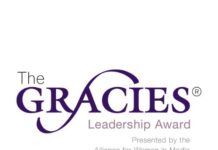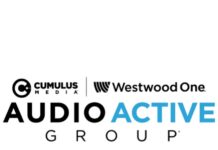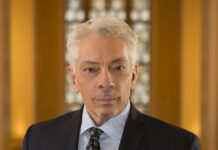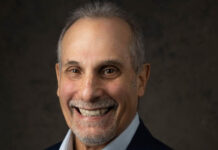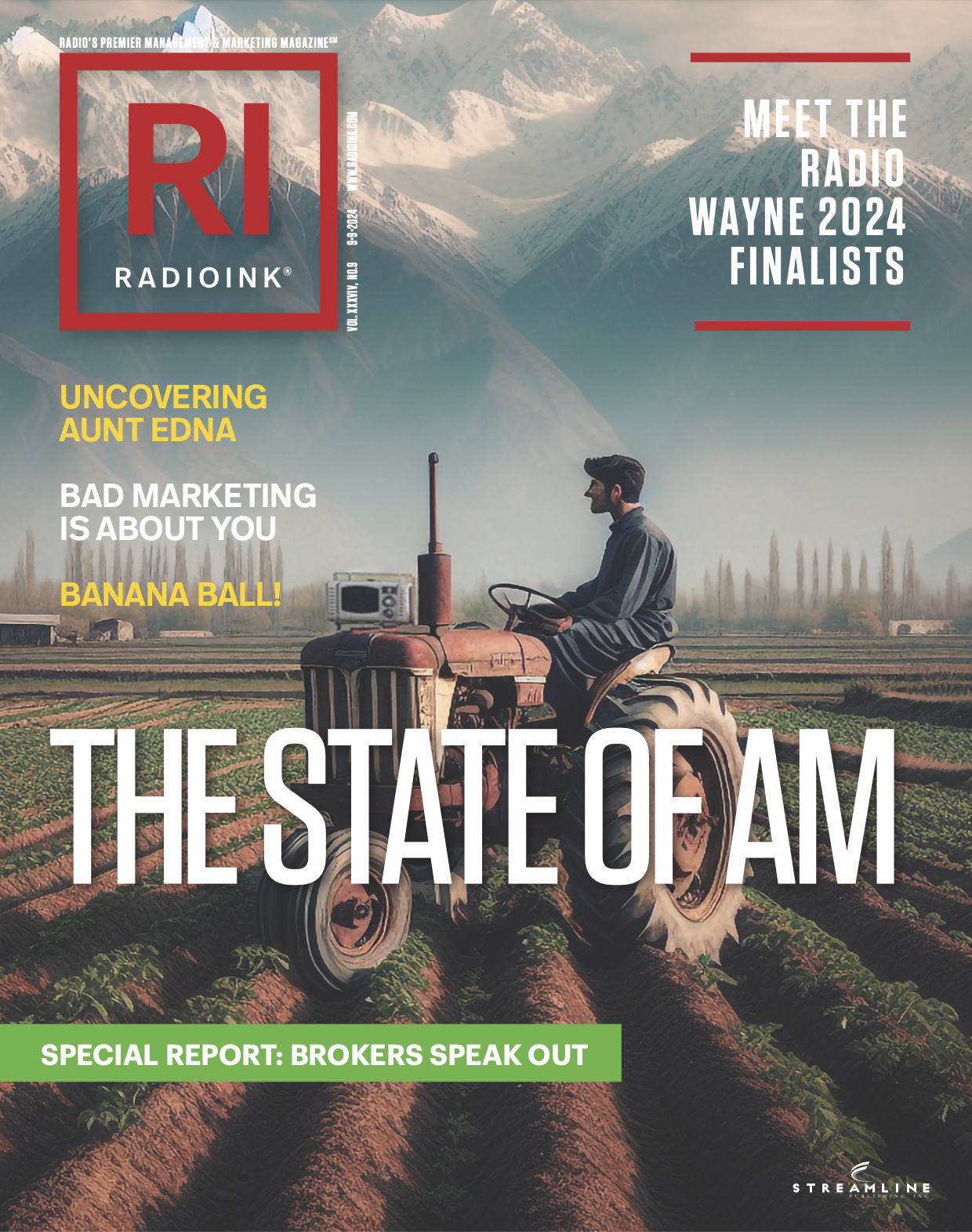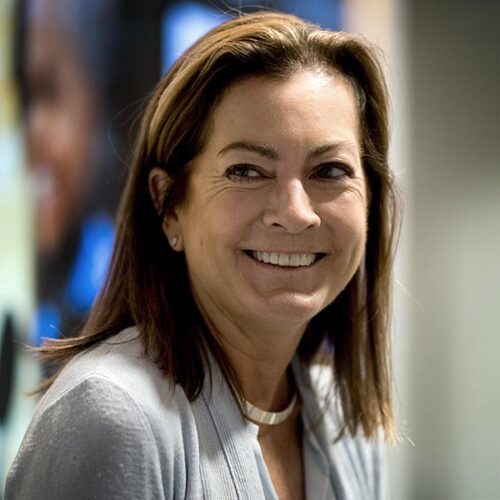
What goes into creating a great station event, let alone a great series of station events? It’s not just parking the station vehicle out front and aesthetic placement of the step-and-repeat. To find out more about quality station programming off-air, Radio Ink talked to Amy Macdonald, Director of CitySpace – the theater and event side of Boston’s NPR affiliate WBUR.
Radio Ink: Radio is such a robust medium, but when so many stations try and create experiential content and events off-air, it falls flat. In the course of programming, ratings, and management, sometimes events get overlooked or under-budgeted. Why is CitySpace such a priority for WBUR? What is the vision there?
Amy Macdonald: So to your point, radio is such a wonderful medium, and a radio station like WBUR has loyal, avid, and educated listeners. The vision for CitySpace was to bring our journalism on stage; to have our community of listeners convene and see our journalists’ work live. These journalists research, write, and edit these stories down for a five-minute piece on WBUR, but when they’re on stage, they’re being interviewed for an hour. They can fill in context, meet their fans, and take questions. It’s another way to enhance our community. It’s a public service.
It’s a way of bringing people together to inform, educate, and entertain them. If you’re familiar with the 92nd Street Y in New York, I like to call CitySpace at WBUR the 92nd Street Y of Boston. Not only does we cover news, policy, and politicians, but we also covers arts, entertainment, and music.
We have panel discussions on gun policy. We have author interviews. We have hip hop dance. We have cooking. We have MOTH story slams. We have live podcasts. We have classical music. We do everything.
Radio Ink: It feels like COVID lockdowns created a fundamental change in how we view events, in-personal and virtual. How has the pandemic affected the role and importance of events for stations like WBUR?
Amy Macdonald: It’s definitely been a journey. CitySpace opened in March 2019. It seats 255 people. It’s a gorgeous venue at a busy intersection on the west side of the Boston University campus. When we started, we went 100 miles an hour. We did four events a week to put our stamp on the city, which we did. Then at the beginning of March 2020, I thought, “We’ve got to slow down a little bit and we got to be a little more strategic.” Then COVID hit and we shut down for 18 months.
We switched to all virtual programming. Like so many other organizations, we had a very good audience at first. Then you just saw the virtual audience begin to go down, especially in those summer months. People were ‘zoomed out.’
When we opened again in September 2021, I will be honest, it was touchy. The audience was still a little nervous. We opened at half capacity. Then there was the Omicron spike, and we closed down again for the month of January 2022.
We began to hit our groove and return to pre-COVID levels this past September. Number one, it took great programmimg. All of a sudden, our in-person numbers were going up and our virtual numbers were going down. There’s nothing like communing in person. People are hungry for it. They want to be with a like-minded community. At this point, we have a healthy attendance.
Radio Ink: About that attendance – public radio has a very distinctive, yet diverse audience. Does that help or hinder when it comes to station event planning?
Amy Macdonald: I plan in two different lanes when we’re thinking of programming. We always have in mind that NPR audience – that ardent love of Nina Totenberg, Car Talk, and the like, New York Times and New Yorker writers. Those are the kinds of authors and people and panels that our core audience loves, and those events always sell out.
But like every radio station, we want to attract a younger audience to WBUR. They don’t own radios. They listen when and where they want to. By programming for them, CitySpace is another avenue to get new people introduced to WBUR and our journalism. Content drives the audience. This is a perfect example: do you know who Jennette McCurdy is? She’s a former Nickelodeon star that wrote a smash best-seller, I’m Glad My Mom Died.
During a sold-out book talk on Ruth Bader Ginsburg, Nina Totenburg’s publicist said to me, “Oh, God, I’m in such a good mood. I just have an author who hit number one on the New York Times bestseller list.” I said, “Who is it?” She said, “Jennette McCurdy.” I have a son, but we never watched McCurdy’s hit show on Nickelodeon. I didn’t know who Jennette McCurdy was. I mentioned it to my assistant director, who is 35 and a woman. She said, “You go back to that publicist and get Jennette McCurdy.” We did, and it was such a home run. Her message was important. It wasn’t frivolous. It was about Hollywood, child abuse, and mental illness.
I would say that almost every person in that Jennette McCurdy talk would not have heard of Nina Totenburg and everyone in Nina Totenburg’s audience would not have heard of Jennette McCurdy. I’m programming for both of those audiences.
And so going forward, I’m just always thinking, “Who is the next Jennette McCurdy?” This isn’t simply best-selling authors, either. Last night we had the podcast Vibe Check with Sam Sanders, Zach Stafford, and Saeed Jones. We were the first spot on their tour, and it was so much fun. The show was completely diverse, young, energetic, and it sold out. People were laughing so hard, they were crying. The hosts stayed and met the audience afterwards. We need those kinds of events. While I’m always thinking of the classical music on Sundays when the older crowd comes out, we also need Vibe Check and that audience.
Radio Ink: Keeping an eye on multiple spheres and audiences like that is a lot to do by yourself. How much collaboration and suggestions do you get from your team when it comes to planning events for CitySpace?
Amy Macdonald: I have one other producer, and there are four of us on the editorial side. Our assistant director does the web, marketing, and audience engagement, and she’s the one who told me to go after Jennette McCurdy. I am completely open to good ideas.
Our journalists also sometimes pitch an on-air series that would also work as an event. Now, not all journalism lends itself to a live event. Some can be deadly, but some can be informative and successful. One journalist started a series about gardens, lawns, and sustainability, so we had a farmer’s market in CitySpace, followed by a conversation with farmers. I’m absolutely open to ideas from my colleagues. It’s constant, but it’s never boring.
Radio Ink: This summer at CitySpace, you all are doing – and this is something that’s been on the rise nationwide only very recently – live podcast tapings. What led you to live podcast tapings and how have you found that audiences respond to these?
Amy Macdonald: In our first year at CitySpace, we had a collaboration with the Wilbur Theater. Boston’s Wilbur Theater is known for comedy and live podcast shows. In the past, whenever they had an up-and-coming show that couldn’t fill that 1000-seat theater, they had it at CitySpace. They paid us nothing, but it was a way that first year to just get people in the door and get all sorts of audiences.
Then COVID hit, and that ended. When we reopened, we had to have a different model; we couldn’t just give this space away. While that door closed, we thought about how there are so many wonderful NPR podcasts. There’s Radio Lab, Left, Right, and Center, Freakonomics, and there’s our own Circle Round.
Circle Round has been such a success. Circle Round is our children’s podcast. CItySpace happens to host the only children’s podcast festival in the country. This is the fourth year that we’ve done it. We take a weekend during public school vacation, and we have the top children’s podcasts around the country come and perform.
We’ve done Circle Round shows on our own as well. They consistently sell out, and it’s just a joy. These kids come in and they’re so starstruck when they see and hear Rebecca Sheir read stories. It would be like me meeting George Clooney. They are so adorable. It’s wonderful.
We have started a monthly series of live podcasts, and I suspect they will sell out. And what better venue than WBUR, which is in the business of audio and vying to be the place in Boston to come hear the coolest, most popular podcasts in the country? So that is our aim. I think it’s going to be a tremendous success. We’re having Mortified in August. We’re pretty much booked through 2023 for these live podcasts.
Radio Ink: And those are all NPR-affiliated podcasts, or do any of them come from outside?
Amy Macdonald: Only some of them are. Many of them are not. Vibe Check isn’t. Mortified is not. We had Pod Save America when we first opened. I would love to get them again. No, only some are NPR, but they’re all great fits. We’re going after all the cool podcasts.
Radio Ink: You’re not worried about a podcast outside the station umbrella being promoted by the station?
Amy Macdonald: It’s an opportunity for us to promote our podcasts. They’re in our venue; our logos are there – we use these events to promote WBUR. For example, last night we used Vibe Check to promote our podcast, The Common. Everybody who subscribed got a WBUR tote bag, and nearly all 250 people subscribed. We’re going to do that every single time. We’ll pick a WBUR podcast pairing and introduce those audiences to our material.
Radio Ink: Radio is fighting for everyone’s time now. Media is so broad and pervasive that it’s a lot of work getting even a portion of a participant’s time over the air or digitally, much less in person. How do radio stations differentiate themselves from other platforms and maintain a competitive edge?
Amy Macdonald: The mission and the brand that I want for WBUR CitySpace is to be eclectic. It’s to have something for everyone. You’ll have 250 people who want to go see Vibe Check. The night before Vibe Check, we had Pulitzer Prize-winner Matthew Desmond, who has just written Poverty, by America. Again, we sold out. In fact, we had to close it. There were people outside waiting to come in. But would all of those people necessarily have come to Vibe Check? No.
But that’s the beauty of this space – there are so many different interests. You want your station events to have something to offer everyone, whether it’s that serious conversation or to laugh your head off. But know your audience.
In the summer, we lighten the load. I’m not going to get an audience for gun policy in July and August. I’m not; I’ve learned my lesson. We’re doing music, a chef throwdown, and ice cream in August, and we’ll get an audience because they’ll be in the mood for that kind of lighter fare. Then we’ll pump it all up again in September.

